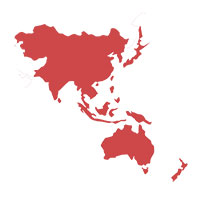Negotiations Test Small Island Solidarity
Andres Fuentes | December 13, 2014.
As the, already overtime, UN climate change negotiations resumed earlier this morning in, there was a clear divergence in the Alliance of Small Island States (AOSIS), one of the traditional negotiating blocs. Two of their members, the Marshall Islands and the Cook Islands, spoke in favour of the current text, which many other AOSIS members, and developing countries, oppose. Their opposition centres around the language on differentiation, the lack of loss and damage, and the scope of the Intended Nationally Determined Contributions (INDCs).
The Marshall Islands was the first member of AOSIS to express their support for adopting the text. Their support came at the end of a speech that was otherwise critical towards the text. Tony de Brum, minister of foreign affairs told the plenary that: “There are parts of the text with which we are very uncomfortable, and parts that are very thin. We are of course not alone in this.”
He went on to emphasise the need to look at those who suffer from the impacts of climate change: “It is not only the national sovereignty of those whose emissions are being assessed which must be respected, but also the sovereignty of countries like mine whose national sovereignty and existence is threatened by their emissions.”
It was the vulnerability of the Marshall Islands that led de Brum to express his support for the text though: “I am prepared to put aside those differences, to keep working on our new agreement, because without moving forward now, and without success in Paris, my country is on the line.”
Opposing the text, from AOSIS, was Tuvalu and the Solomon Islands. Their biggest issue was the disappearance of loss and damage. In presenting their opinion, the representative for Tuvalu said: “Don’t let this COP be the one that denies the poorest of the world.”
The inclusion of loss and damage could eventually lead to many of the OASIS countries receiving compensation for the damage caused by climate change, something they consider key as climate change moves past their levels of adaptation. All the AOSIS nations mentioned the importance of loss and damage, and asserted its need for inclusion in the text. Now, as the negotiations continue, the question is how can move forward given that this has caused a clear division.







![Secretary-General Ban Ki-moon meets with Leaders from Small Island Developing States
[Secretary-General’s Conference room, Le Bourget]
- H.E. Mr. Anote Tong, President of Kiribati
- H.E. Mr. Christopher J. Loeak, President of Marshall Islands
- H.E. Mr. Freundel Stuart, Prime Minister of Barbados
- H.E. Mr. Kenny Davis Anthony, Prime Minister of Saint Lucia
- H.E. Mr. Enele Sosene Sopoaga, Prime Minister of Tuvalu](https://theverb.org/wp-content/uploads/2015/12/SG-Travel2-e1449660252704-120x120.jpg)





comment